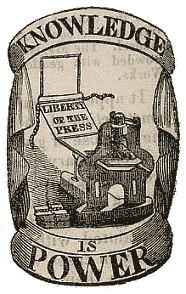


Government’s view of the economy could be summed up in a few short phrases: If it moves, tax it. If it keeps moving, regulate it. And if it stops moving, subsidize it.” —Ronald Reagan
The French political thinker and historian Alexis de Tocqueville (1805-1859) was a student of American Democracy. He wrote "Democracy In America", a two volume set that was published in 1835 and 1840. The man was a "Liberal" of his times, considered by most as beginning the work on study of Sociology and Political Science. I was first introduced to his works in a Poly-Sci. course at Northwestern University.
He had many things to say about the greatness of America, but he cautioned about people who use words(we call it semantics) to garner the peoples attention. Such words as used by the Obama campaign as CHANGE" he had little use for.
The following is a quote from his book.
"Democratic nations are passionately addicted to generic terms and abstract expressions because these modes of speech enlarge thought and assist the operations of the mind by enabling it to include many objects in a small compass. A democratic writer will be apt to speak of capacities in the abstract for men of capacity and without specifying the objects to which their capacity is applied.…
These abstract terms which abound in democratic languages, and which are used on every occasion without attaching them to any particular fact, enlarge and obscure the thoughts they are intended to convey; they render the mode of speech more succinct and the idea contained in it less clear.…
Men living in democratic countries, then, are apt to entertain unsettled ideas, and they require loose expressions to convey them. As they never know whether the idea they express today will be appropriate to the new position they may occupy tomorrow, they naturally acquire a liking for abstract terms. An abstract term is like a box with a false bottom; you may put in it what ideas you please, and take them out again without being observed".
To which I can only add something that Tocqueville did not anticipate but which is quite consistent with his observations: that the looseness and flexibility of abstract ideas may serve to conceal the fact that what appear to be unsettled ideas are in fact much more settled, even stagnant, than they appear to be.Change can be either a change for the better or a change for the worse! Such was the case with Adolph Hitler and Karl Marx!
Tocqueville's words imply another danger: that these words can thrill ( as seen in the messianic nature of Obama's followers)and "intoxicate", and that their meaning can be made to expand reason and bloat into something actually dangerous. Or the words may at least bring something deeply opposite to their original supposed meaning. It also suggests that a democratic culture may be particularly susceptible to such hyperbolic rhetoric.AS in politicians promise anything to be elected, but then once they get in office their memory becomes very short!
Thus, we have yet another reason to be attentive to the ways in which abstract words are misused. To illustrate this point, look more closely at two such words: "experiment" and "promise." Both are abstractions of extraordinary importance in American public speech. Both speak to values and characteristics that are thought to be typically American. But both have largely lost their original meaning and have become crafted into usages that serve to undercut some of the very things they once served to support. The one we face today is CHANGE!
Will the Change Obama and his ilk bring to US be a good thing or a disaster. I think if you look at his voting record and what he has espoused in the past it would make anyone who values the freedoms we now have nervous.








No comments:
Post a Comment